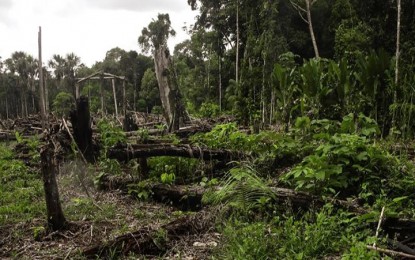
ISTANBUL – Worldwide, 420 million hectares of forest area were lost between 1990 and 2020, according to an expert, with net forest loss over the 30-year period approximately 178 million hectares.
Prof. Doganay Tolunay, head of the Department of Soil Science and Ecology at Istanbul University - Cerrahpasa Faculty of Forestry, said most of these losses occurred in tropical rainforests located in Brazil, Bolivia, New Guinea, and Indonesia when considering the data from afforestation projects, which involve planting trees on land that has not recently been covered with forest.
Net forest loss measures deforestation plus any gains in forest area over a given period.
Tolunay told Anadolu that the support provided to countries where tropical rainforests are located does not completely stop deforestation but reduces its extent.
"The tropical regions, located between 23 degrees north and south of the equator, experience hot and rainy weather throughout the year. These regions, influenced by tropical climate characteristics, are covered by rainforests,” he said.
He said tropical rainforests could be found in certain areas of Argentina, Bolivia, and Indonesia, as well as in the central parts of the African continent, Southeast Asia, and partially in Papua New Guinea.
He emphasized that tropical rainforests, which make up 45 percent of the world's forests, are facing irreversible destruction due to climate change, urbanization, and demographic changes.
"Reasons such as the conversion of forested areas into agricultural land and the use of forested regions for grazing livestock account for 90 percent of the current deforestation," he said.
Tolunay said that according to the UN Sustainable Development Report, the forest area, which covered approximately 31.9 percent of the total land area in the world in the year 2000, decreased to 31.2 percent by 2020, with a loss of 100 million hectares.
"Despite possessing 54 percent of the world's renewable water resources, the UN drew attention to the issue of water and food scarcity faced by local communities in tropical regions and aimed to preserve biodiversity and raise awareness through its decision in 2016 to designate June 29 as the International Day of the Tropics," he added. (Anadolu)
